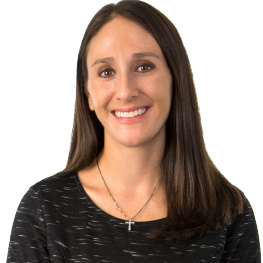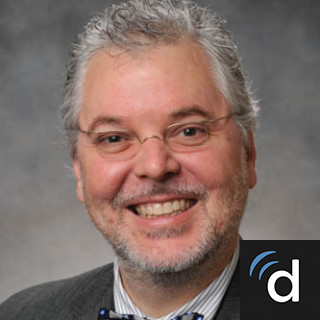The safety net
Health systems are the front line against coronavirus
Kate Andrews //March 29, 2020//
The safety net
Health systems are the front line against coronavirus
Kate Andrews //March 29, 2020//
Even before the outbreak of COVID-19, many Virginia hospital beds were routinely full.
“We are 90% to 100% occupied every day in VCU Health, generally [from] elective surgical care,” says Dr. Ron Clark, interim CEO of VCU Hospitals and Clinics.
In the days following Gov. Ralph Northam’s state of emergency declaration, health care officials across the commonwealth said they had enough surgical gowns, masks and gloves, as well as plans to increase the number of beds and ventilators to deal with a dramatic influx of patients in the spring and early summer if needed. Northam released $10 million in state funds for preparations, and hospitals placed orders for more supplies, including from the Centers for Disease Control and Prevention’s emergency medical stockpile.
But if the coronavirus pandemic isn’t slowed and reaches a tipping point, conditions could deteriorate rapidly, health care professionals say.
“It’s really important for folks to realize the pandemic is here; we’re going to see more cases in Virginia,” Clark says. “This is an opportunity for each of us to pitch in for the public health. I don’t know if people appreciate the power of that.”
Viral challenges
Faced with coronavirus, hospitals may have to cancel elective surgeries and add beds in pre-operative, post-operative and recovery areas to handle patients, doctors say. If the patient load increases dramatically as feared, additional temporary care sites may be needed. Many health systems are expanding telehealth programs in an effort to free up hospitals and medical facilities from treating patients with less serious maladies.
Rhodes Ritenour, Bon Secours’ vice president of external and regulatory affairs, told the governor in March that it would be helpful if the state or the federal government could relax doctors’ license regulations, allowing out-of-state physicians to pitch in as needed to deal with the crisis.
One major challenge for health systems is making sure they have enough intensive care beds and ventilators, the assisted breathing machines in high demand for patients in respiratory distress from COVID-19. Virginia Secretary of Health and Human Resources Daniel Carey said in mid-March that there are about 2,000 ICU beds across the commonwealth and about 400 ventilators. Based on data from the Kaiser Family Foundation, there are about 2.1 hospital beds available per 1,000 people in Virginia. However, the national average is 2.8 beds, according to the Organization for Economic Co-operation and Development. By comparison, Italy, which has been extremely hard hit by the pandemic, has 3.2 beds per 1,000 residents.

The Defense Department freed up 2,000 ventilators and 5 million single-use respirator masks from military strategic reserves for nationwide use in March.
In the event Newport News-based Riverside Health System doesn’t have enough ventilators to meet patient demand, the system “would … work with our vendors to try to get more,” says Mark Rath, executive director of accreditation and support operations. “But … at the end of the day, if we don’t have enough vents for the patient demand, you may have to go back to bagging a patient or whatever the case may be to help support that patient.”
Bagging, explains Riverside epidemiologist Dr. Rebekah A. Sensenig, is the process of putting “a tube into the [patient’s] airway and then, instead of hooking them up to a machine, somebody would have to manually squeeze the bag every couple of seconds,” effectively breathing for the afflicted person.
At VCU Health System, on a normal day without COVID-19, there are 50 to 60 people on ventilators and 30 to 40 ventilators available on reserve, Clark says.
Emergency measures

Norfolk-based Sentara Healthcare, the largest hospital system based in the state, with 2,741 beds in 12 hospitals in Virginia and North Carolina, is prepared to transfer ventilators and any equipment between its hospitals as needed, says Dr. Joel Bundy, the health system’s chief quality and safety officer.
Sentara’s size works in its favor, Bundy adds. Hospitals that are already at capacity can quickly transfer patients anywhere within the system. And if needed, hospitals can move some patients to outdoor tents and some nonemergency elective surgeries — such as cancer removals — could be done at ambulatory clinics or less-burdened facilities. “It may mean if I need a biopsy and I live near Hospital X, and they don’t have capacity, I may go to Hospital Y.”
Sentara ramped up its coronavirus response quickly, setting up three drive-thru COVID-19 screening and testing locations in Virginia Beach, Williamsburg and Chesapeake. After two days, they suspended the initiative when they ran low on testing kits, but reopened two drive-thrus a day later.
Hospitals were also getting creative with check-ins, moving registration and screening areas outside to protect people in emergency rooms and waiting rooms from potential COVID-19 exposure. In Northern Virginia, Inova Health System facilities screen potential COVID-19 patients by phone. Some Bon Secours hospitals have set up tents in parking lots.
In the event of an emergency with massive numbers of infected people, regional hospital associations like the Eastern Virginia Healthcare Coalition, which covers the Peninsula region and Hampton Roads, have the ability to pool resources to form temporary hospitals. “Every hospital has the capacity to do a small piece of that or to come together if we need to create the mobile COVID hospital,” says Rath with Riverside.
Testing and screening for the virus have also posed challenges for hospitals.
In mid-March, hospitals basically had two testing options: The Virginia Department of Health, which has very tight restrictions on who gets tested, and two private labs: North Carolina-based LabCorp, which takes two to five days to deliver test results, and Quest Diagnostics in New Jersey.
The University of Virginia Health System rolled out its own COVID-19 test on March 19, with plans to scale up to testing 80 people per day. And Sterling-based biotech firm Aperiomics launched a $250 commercial test available to medical providers, saying its lab has the capacity to deliver 1,000 test results per week.
Sentara was also working on developing testing kits, with a goal to start testing by the end of March. It takes two hours to get results, Bundy says, which would help if a hospital needs to test a doctor, nurse or lab technician who may have been exposed.
“Development of rapid testing is welcome,” says Dr. Tina Latimer, director of emergency services for Bon Secours Mercy Health’s Richmond and Hampton Roads hospitals. “Having community testing will leave ERs for the most vulnerable populations. We are the safety net.”
Follow the links below to read the rest of the stories in this Virginia Business special report about the impact of the coronavirus crisis:
• Teleworking
• Advice from HR experts
• Tourism industry takes hard hits
• Restaurants try to hang on
• InsideView: Y2K or Walking Dead?
r


















